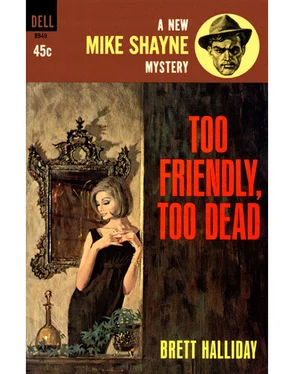Dan Fesperman - The Double Game
Здесь есть возможность читать онлайн «Dan Fesperman - The Double Game» весь текст электронной книги совершенно бесплатно (целиком полную версию без сокращений). В некоторых случаях можно слушать аудио, скачать через торрент в формате fb2 и присутствует краткое содержание. Жанр: Шпионский детектив, на английском языке. Описание произведения, (предисловие) а так же отзывы посетителей доступны на портале библиотеки ЛибКат.
- Название:The Double Game
- Автор:
- Жанр:
- Год:неизвестен
- ISBN:нет данных
- Рейтинг книги:3 / 5. Голосов: 1
-
Избранное:Добавить в избранное
- Отзывы:
-
Ваша оценка:
- 60
- 1
- 2
- 3
- 4
- 5
The Double Game: краткое содержание, описание и аннотация
Предлагаем к чтению аннотацию, описание, краткое содержание или предисловие (зависит от того, что написал сам автор книги «The Double Game»). Если вы не нашли необходимую информацию о книге — напишите в комментариях, мы постараемся отыскать её.
The Double Game — читать онлайн бесплатно полную книгу (весь текст) целиком
Ниже представлен текст книги, разбитый по страницам. Система сохранения места последней прочитанной страницы, позволяет с удобством читать онлайн бесплатно книгу «The Double Game», без необходимости каждый раз заново искать на чём Вы остановились. Поставьте закладку, и сможете в любой момент перейти на страницу, на которой закончили чтение.
Интервал:
Закладка:
He was a minor but remarkable character who first appeared in Lemaster’s A Lesson in Tradecraft — Flugel, the can-do fixer who ran a safe house in Hamburg. He also had another distinction, if my memory was correct. He once had an encounter with Heinz Klarmann, the freelance operative modeled after Lothar Heinemann.
Now the store had my full attention, especially as I recalled Lothar’s cryptic words about where he’d stashed the last remaining copy of his unpublished novel. It was “hiding in plain sight,” he’d said, and if I wanted to find it I had to “think like a book scout, think like a spy.”
I checked the store hours posted on the door. They opened at 10:00 a.m.
When I got back to Dad’s I pulled down his copy of A Lesson in Tradecraft and found the following exchange, set at Flugel’s safe house in Hamburg. It comes just after Heinz Klarmann’s narrow escape from a would-be assassin:
Klarmann stood a few feet inside the entrance, dripping November raindrops on the tatty carpet. He’d already tracked mud onto the floor, and Flugel watched from the end of the hallway in obvious disapproval, shaking his head and clicking his tongue.
“Shoes off, if you please!”
Klarmann grumpily complied.
“That jacket as well. Use the hook by the door. The filthy hat, too.”
“So is this to be the dockage fee for safe harbor? Perpetual attack by an anal-retentive key holder? Perhaps I should take my chances with the Russians.”
“Your life, your call. My house, my rules.”
For a moment Klarmann hesitated, as if actually weighing the option. Then he frowned and shrugged off his jacket, grumbling all the while. But he left the hat in place, and Flugel held his tongue even as Klarmann walked defiantly toward the stairs, the soggy hat dripping as regularly as the ticking of a clock.
And there you had it. A fussy proprietor named Flugel offering “safe harbor” for Lothar Heinemann’s alter ego. One didn’t even have to think like a spy to make this connection. Certain that I was on the threshold of discovery, I slept soundly.
In the light of morning I was more uncertain about my epiphany. It felt like a stretch, mere coincidence. But it was still intriguing enough to check out. I took precautions to keep from being followed, by boarding a series of trams and buses, then doubling back until I strolled up to Der Flugel shortly before 10:15. The door rattled open. No need for a bell in a shop this small.
An older man with wisps of hair plastered across a shiny scalp nodded to me from a stepladder. He was shelving books in the Mozart section, which took up half a wall.
“Guten Tag.”
I replied in kind and went straight for the fiction. The books were neatly alphabetized by author. Several nice finds leaped out at me, but when I reached the H ’s there was nothing by Lothar Heinemann; the volumes jumped directly from Heinrich Heine to Hermann Hesse.
I checked a few other categories-Local Interest, European History. No luck. So much for my moment of inspiration. I cleared my throat. The fellow on the ladder responded immediately.
“Are you looking for something special?”
“Do you have anything by Lothar Heinemann?”
“The book scout?” He looked flabbergasted. “ For him, you mean?”
“No, by him. A novel in galley form. I don’t know the title.”
“I wasn’t aware he had written a novel.”
“It was never published.”
“Ah! That explains it, then. We do not deal in manuscripts. Oh, begging your pardon, we do not deal in unpublished manuscripts. We do, however, have a very limited collection of manuscripts, three or four by some German authors. But those are kept under lock and key in our special collection. Although I’m certain none were written by Lothar Heinemann. But if you would like to check for yourself, I can obtain the key.”
“Sure,” I answered halfheartedly. “Where’s the special collection?”
“In the office. But we must proceed quietly. Herr Ziegler has not yet had his coffee.”
I thought he was joking until I noticed his look of trepidation. He fairly tiptoed toward the office in the back, where he put his ear to the door, then knocked lightly.
“Herr Ziegler?”
“Yes! What is it?” A snarl from within.
“A customer wishes to browse the special collection.”
A loud sigh. Then the creak of an office chair. The door swung free. Herr Ziegler glared at us as if we’d interrupted the world’s most indispensable work. Balance sheets and order forms were fanned across his desk, but so were the football pages of the Wiener Zeitung, next to a steaming mug of coffee and a half-eaten slice of strudel. He was tall, thin, and imperious, a weathered strip of jerky with watery blue eyes.
He gestured for us to enter, then barely moved out of our way. The clerk walked crabwise to keep from bumping him but I brushed on past, heading eagerly toward a glass-fronted book case along the far wall. The clerk fumbled with a set of keys, then unlocked the bookcase and pointed toward the bottom.
“The manuscripts are down there, as you see.”
But I was already looking at the fiction titles. As with the books in the rest of the store, they were in alphabetical order. Novels filled the two top shelves. I quickly scanned the H ’s, but saw no Heinemanns. I checked again to make sure. Nothing.
Any remaining optimism from the night before was now gone, and I was about to turn away when I spotted a blank powder-blue spine-the very sort of cheap cardboard jacket often used for prepublication galleys. It was in the wrong part of the alphabet, but I pulled it out anyway. Title and author were printed in block letters on the plain blue front.
Der Kuriers
Heinz Klarmann
Of course. Now it seemed obvious. A pen name stolen from his alter ego. Just enough of a tweak to throw off any searchers who inquired by telephone, which was probably how my handler would’ve worked to save time, proceeding store by store across Europe.
“Do you have any titles by Lothar Heinemann?”
“No, sorry.”
Even if someone had checked in person, they would’ve had to breach Ziegler’s inner sanctum, and even then they would’ve been greeted by a blank spine shelved with the K ’s.
“Sir, don’t you want to see the manuscripts?”
The poor clerk was down on his knees with a small pile.
“I’d rather have a look at this,” I said. “Can you tell me what the price is?”
Ziegler, having returned to the sports pages, wasn’t paying us a bit of attention. The clerk stood awkwardly. He took the galley and flipped open the cover to the inside page where the price should have been, scribbled in pencil.
“I’ve never understood why we keep this old thing,” he said. There was no marked price, so he flipped to the back.
“Well, I’d definitely like to buy it.”
Or, short of that, maybe I’d snatch it straight from his hands. That’s how eager I was to begin reading. If it even came close to living up to Lothar’s billing, then I had just discovered the key to everything. At the very least, Lothar would now have to reveal the name of our handler.
“Herr Ziegler,” the clerk said in a begging tone, “our customer would like to buy this volume, but, well, I can’t seem to find the price.”
Ziegler sighed and looked up from his paper, peering above his reading glasses.
“Which volume, Klaus? You’ll have to actually show it to me.”
Klaus raised the pale blue cover into view. Ziegler’s expression instantly changed to one of alarm.
“That’s not for sale! It’s not even supposed to be available for inspection. Put it away at once!”
I snatched it out of Klaus’s hands as they both gasped. Ziegler seemed to take notice of me for the first time. He smiled tightly and extended a long, thin arm.
Читать дальшеИнтервал:
Закладка:
Похожие книги на «The Double Game»
Представляем Вашему вниманию похожие книги на «The Double Game» списком для выбора. Мы отобрали схожую по названию и смыслу литературу в надежде предоставить читателям больше вариантов отыскать новые, интересные, ещё непрочитанные произведения.
Обсуждение, отзывы о книге «The Double Game» и просто собственные мнения читателей. Оставьте ваши комментарии, напишите, что Вы думаете о произведении, его смысле или главных героях. Укажите что конкретно понравилось, а что нет, и почему Вы так считаете.












